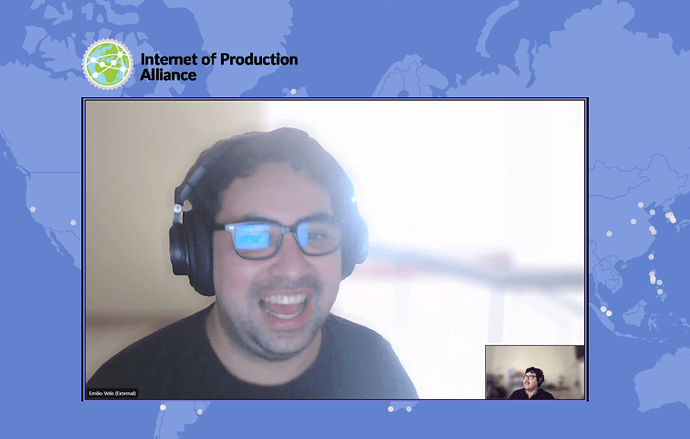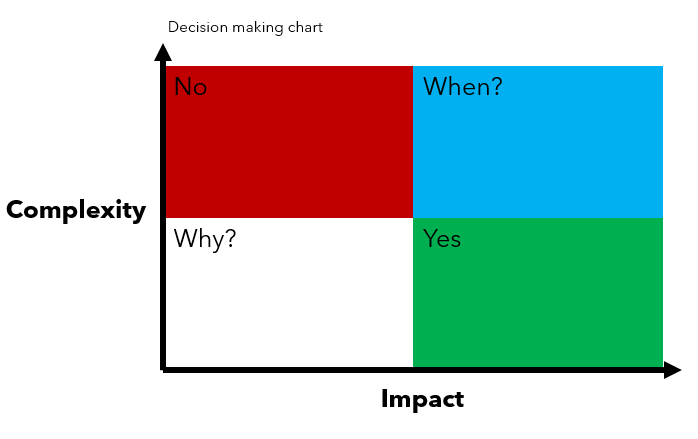Hi everyone, this is the continuation of the WG actions derived from our past OKW WG kickoff session.
Summary
Briefly, we agreed on the following actions:
From Community:
- Schedule individual conversations with community members, bringing the ideas for the technical work, charter and overall OKW as initiative.
- Update the OKW repository including a data schema.
- Research for API and data access for OKW.
- Write this community entry, documenting our conversations.
From IOPA:
- Add Vulca, Maker Tour, Makery data sources.
- Provide a playbook for data contributions. (Needslist legacy data).
Following OKW technical roadmap:
- Continue the writing for data validation and aggregation strategy.
This topics are extensive and require additional entries on the community forum.
Conversations
Emilio Velis from Appropedia.Org
Knowing Appropedia
During my time serving the Internet of Production Alliance, I’ve been knowing all the organizations around the world related to distributed manufacturing, decentralized technologies, making and research, Appropedia has been one of the most active and mentioned platforms overtime and I had the opportunity to meet @emilio during the Re:Publica 2023 Festival in Berlin.
But what is the Appropedia? in a few words, it’s a place to document the context and technical work of projects around sustainability and remediation. An alternative to what We see for platforms that only hold technical specs and files, the Appropedia encourages people documenting their journeys to add more details like Sustainability Goals and if they are derivatives from already existing projects. Accessibility is a priority for Appropedia and its Interface provides reading and translations to all available languages using Google Translate,
Highlights
- Encouragement for using OKH manifests.
- PDF download buttons for portability.
- Usage of SDGs.
- API for retrieving tagged entries.
- OSHWA Data requirements for Appropedia:OSHWA Certification tool design.
Feedback for OKW
- Add SDGs to OKW standard specification.
- Revisit the OKW Standard data requirements, add technical details for its application. Reference to the VCF standard.
- Include Appropedia entries to OKW mapping data and visualizations.
Eric Nitsche from Wakoma Inc.
Knowing Nimble, Wakoma and the OpenToolChain Foundation.
From 2022, I’ve attended multiple collaborative events either in person and online, and The OpenToolChain Foundation did organized in Fab City House Hamburg a Hackathon aiming to collaborate for demonstrate how an open source documentation workflow can be implemented for Nimble, one of the impactful works of Wakoma, a project to enable anyone to use open tools to build their own network. I’ve also met @ericnitschke during Re:Publica '23 in Berlin.
During our conversations and by checking Nimble Q&A section I found quickly coincidences to work we do at IoPA, including offline first, disaster/humanitarian response, data collection, homelabs, and overall education. Eric and Wakoma have a powerful mission and I’m looking forward for our collaborations.
Highlights
- Expand OKW initiative as a source for knowledge and replication of maker/fab spaces.
- Offline first and portability distribution for OKW data.
- Offer an output as OSM layer or similar for manufacturing facilities.
- Include Prusa 3D printers map into OKW data and maps.
- Wakoma has people and resources available for collaboration on IoPA technical development from coding to legal advice.
Feedback for OKW.
- Revisit the OKW initiative online content for new comers.
- Write a process for alliance membership applications.
- Keep a lean working group engaging strategy, touching technical and governance points separately.
James Butler from Helpful Engineering
Knowing Helpful engineering
I’ve covered a previous conversation with James, showcasing the OKW infrastructure plan and the match making joints with Open-Know-How. James @Jbutler-helpful always offers an insightful conversation giving resources, technical requirements and ideas for OKH/OKW applications.
Helpful engineering is an alliance funding member, with the mission of Deliver openly engineered solutions everywhere for a world where improved access to resources and opportunity increases innovation, stability and prosperity. And some of the research topics at HE are Data science, supply chain and manufacturing, infrastructure resilience and UN SDGs.
Highlights
- Use Helpful Enginering resources and repositories for data-schema.
- There’s the interest for Helpful Eng. of including Manufacturing Capacity on OKW data but is not a priority due to machine unique identifiers.
- A stable data standard specification is needed to be available as a JSON-SCHEMA.
Feedback for OKW
- OKW charter should start as a living document, covering a high level for the theory of the working group mission, and not focusing on a mission for a specific project.
- Taxonomy using wikidata should be revisited.
- Prioritize technical work.
Nathan Parker from Helpful Engineering
Nathan @mak3r-nathan is currently my most regular advisor from the IoPA Alliance, we have regular meetings every second week, covering from technical work, to ideas and planning for OKW. He serves as Open-Know-How chairman, and has made contributions across the IoPA, enabling me to facilitate and review my proposals for the OKW kickoff.
Highlights
- Potential usage for Knowledge graphs representation of OKW data.
- Submit required projects to a sort of Medical Triage Classification for prioritization.
- Evaluate projects on complexity vs impact.
Feedback for OKW
- Revisit the OKW standard to avoid infinite extensibility of required data.
- Know the explicit needs and objectives of working group members.
- Keep an open and clear work documentation across OKW work.
Reflections and notes
Thank you all for taking the time and open up your agendas for this Working Group! It’s been great talking to you and talk freely on OKW and our visions for this important contribution to the global distribution knowledge of manufacturing.
Shaping Open-Know-Where’s work
I’ve made notes and ideas and I’ve changed my understanding of what it’s important to offer from the IoPA, the value, tools and writings.
I see OKW as a source of knowledge for people to locate different resources including STEM spaces, machining workshops, maker networks, projects, organizations and other people, to learn from what is right know working outside our physical reach, understanding the context of making-things by looking to data in form of maps, documents or graphs.
One example I was giving for our conversations was, “I want to know a fab space on a similar city than mine, with similar tropical weather, and matching machines, and see which one of their projects I could also replicate here.”
Weather is a factor for material selection, and technological needs or constraints. And the location and culture of a place a factor for technology adoption, choice and accessibility requirements. How important is to offer a source to congregate, curate data and solve the pains of not knowing enough existing solutions.
This reflections for context related data potentially includes the work on open business models from @AnnaSera and people and skills from @schutton. We already had a few hints for that, but a conversation should start.
OKW data in a few words
In a few words, a OKW data should include:
Primary:
- Location data.
- Contact information.
- Distributed resource description.
Resources, Extensibility for:
- Organizations, maker/fab/hack spaces, small-businesses to enable organization model replication.
- Products/things to enable an economy.
- Materials/Supplies to enable exchange of goods.
- Machine inventory to enable production rates estimation and project matching.
OKW Charter proposal
- Living document on Framapad
- Latest version posted at Open-Know-Where (OKW) Charter - OKW MAP.
Please add or delete as needed, thank you for your support.

